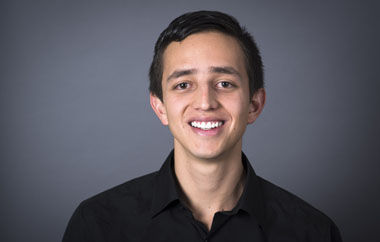PhD Student in Sustainability of Biobased Materials at Aachen-Maastricht Institute for Biobased Materials, Maastricht University, the Netherlands
Research focus: development of decision-support tools for the accounting of scope 3 (LCA) emissions into the value chain of biomass (first- and second-generation) to produce bioplastics
By using renewable resources such as forest and agriculture residues, Carlos aims to provide an added value to these wastes, to reduce the environmental impact of using non-renewable energy sources for electricity generation, and to improve the quality of life for inhabitants of these regions. He investigated different technologies. His objective was to evaluate gasification and dark fermentation systems in non-interconnected zones using lignocellulosic residues from different agro-industrial supply chains (such as pine, sugarcane bagasse, rice husk, and coffee cut-stems). The goal is to produce enough energy for daily life in Colombia’s rural communities.
2019 Young Scientist in the International Institute of Applied Science Analysis within the Young Scientist Summer Programme
2015 chosen for the programme of Young Researchers from Colciencias in Colombia
CV as submitted for the Green Talents award (2016):
National University of Colombia at Manizales, Colombia
Research focus: hydrogen production using Colombian lignocellulosic biomass through gasification and dark fermentation and performing economic, energetic and environmental assessments
According to the World Bank, 97% of Colombia’s population has access to electricity. However, rural areas that do not have access to this public service comprise 66% of the total country’s area. These zones are called non-interconnected zones (NIZ). They are located far away from urban centres, in places that are difficult to access because of their lack of infrastructure and access routes. As a consequence, the inhabitants of these zones are forced to use non-environmentally friendly technologies such as diesel generators, which produce emissions and pollutants.
Through his research, García Velásquez investigated different technologies to meet the energy demand in rural areas, taking advantage of the high availability of natural resources in these zones. His objective was to evaluate gasification and dark fermentation systems in NIZs using lignocellulosic residues from different agro-industrial supply chains (such as pine, sugarcane bagasse, rice husk and coffee cut-stems). The main goal is to produce enough energy for daily life in Colombia’s rural communities.
With a scientific background in renewable energy, engineering and sustainable technology, García Velásquez is currently a master’s student at the National University of Colombia at Manizales focusing on hydrogen production using Colombian lignocellulosic biomass through gasification and dark fermentation. In 2015, he was chosen for the programme of Young Researchers from Colciencias in Colombia.
The jury was impressed by García Velásquez’s application-oriented research on sustainable concepts for the energy supply in non-interconnected zones in Colombia. The jury also valued his commitment to finding a green solution to this important issue. The forum in Germany will provide him with deep insights into the field of sustainable development, as it is the ideal opportunity to meet and connect with likeminded professionals.






